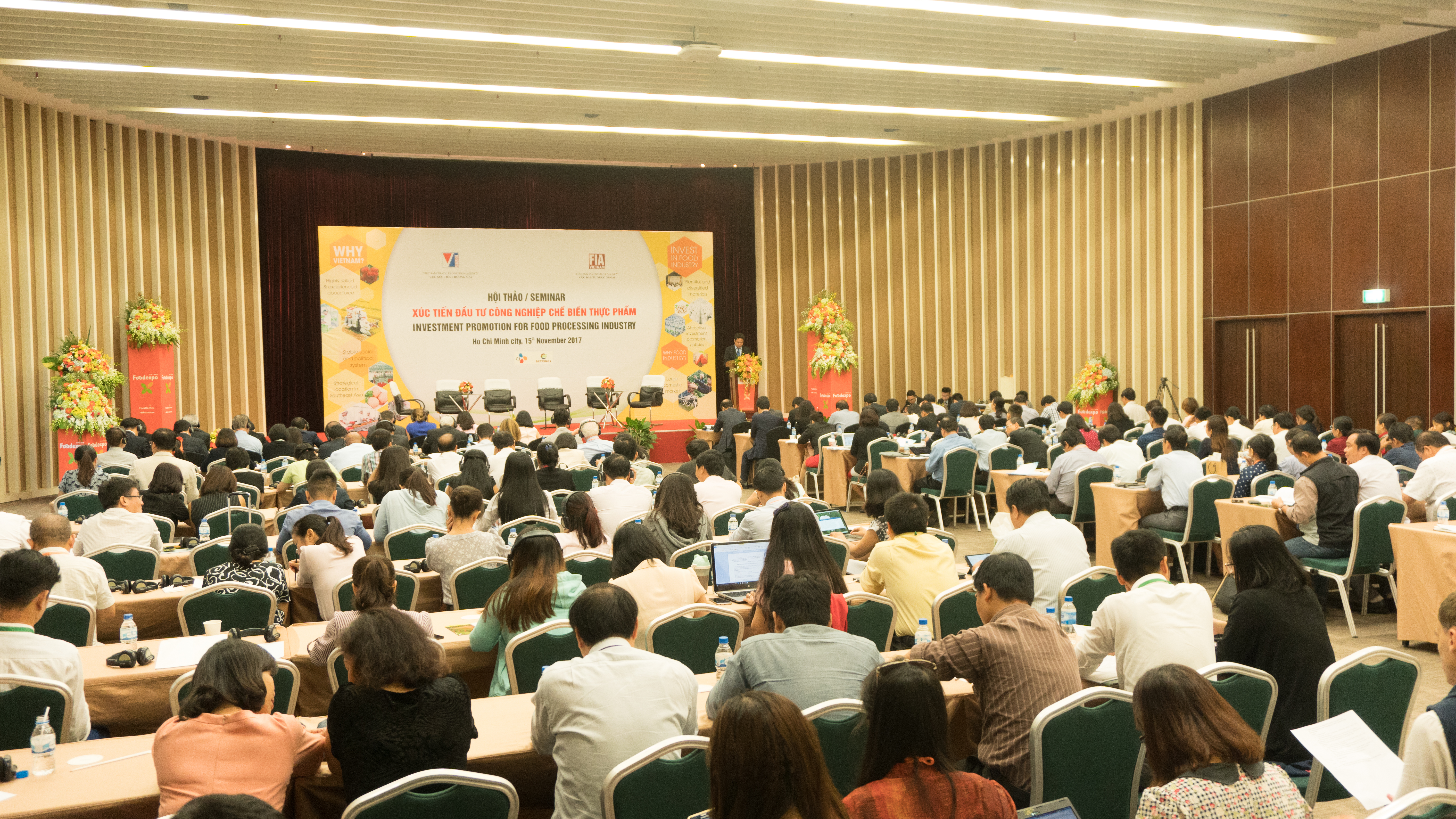According to the Ministry of Industry and Trade, the demand for milk will increase to 27-28 liters / person / year by 2020; Confectionery consumption is projected to increase by 10% a year compared to the regional average of 3% per year and the world average of 1-1.5% per year. The vegetable oil industry currently consumes an average of 12 kg / person / year. It is forecasted that by 2020, consumption will reach 17 kg / person / year. Besides the domestic market, the potential for exploiting and processing foodstuffs for exportis also very big.

However, the production and processing of the above products of Vietnam has not caught up with the demand of the market. The attraction of foreign direct investment (FDI) in this area is still limited. Ms. Tran Kim Oanh, director of the Center for Investment Promotion and Development of Trade and Industry (Vietnam Trade Promotion Agency), said that by the end of October 2017, 128 countries and territories had registered to invest in Vietnam with a total registered capital of nearly $ 313 billion and 24,199 projects. However, the food processing sector only attracted over $ 4 billion with 295 projects. FDI projects in this field were from Singapore with 62 projects of a total registered capital of US $ 1.58 billion; South Korea was ranked second with 61 projects, registered capital was approximately $ 1 billion... Binh Duong was the province that had many FDI projects in food processing, followed by Ho Chi Minh City and Long An.
According to Ms. Tran Kim Oanh, the modest investment figures showed that investment opportunities in this sector in Vietnam were very big. However, domestic raw materials had not met the requirements of production, standards of FDI companies, so the import of raw materials was quite large; the proportion of raw exports was still high, finished export was still low compared to FDI companies in their own country or other countries.
Mr. Thierry Rocaboy, Chairman of the European Commission for Agriculture, Forestry and Fisheries, said that investment trends in food processing had increased in recent years. However, the proportion of European companies investing in processing was small and low compared to its potential. Mr. Nam Sang Kun, an investment promotion expert from Korea, said that Korea's investment in Vietnam in the food processing sector had increased in recent years. Many Korean companies were moving overseas to capitalize on emerging markets in Asia. Trade agreements between Vietnam and Korea were also creating favorable conditions for Korean businesses to increase investment in Vietnam.
Meanwhile, according to Mr. Vo Thanh Do, Deputy Director General, Department of Agro-product Processing and Market Development, Ministry of Agriculture and Rural Development, the source of abundant agricultural materials would be the strength for Vietnam. Besides, Vietnam had advantages to attract foreign companies to invest in the field of food processing thanks to high and stable growth economy, open investment environment, abundant labor resources, furnished infrastructure in industrial parks and technology parks. These would be favorable conditions for foreign businesses to invest in Vietnam effectively.
Ms. Tran Kim Oanh said that it was necessary to plan raw material areas, supporting FDI companies to build and develop material areas for stable production.